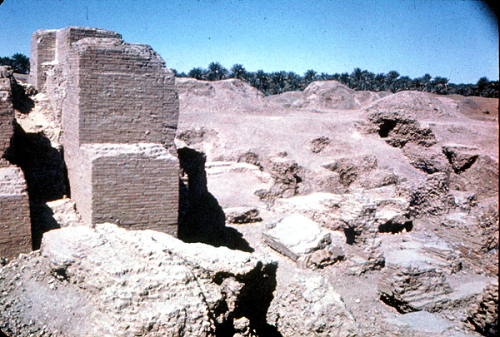March 24, 2010.
“It was the best of times, it was the worst of times.” All three ancient cities went from their best to their worst. Of course, many ancient cities have been destroyed. Think of Nineveh, Petra, and Ur. In contrast, many ancient cities continue into modern times. Think of Damascus, Athens, and Rome. Two thousand years ago, anyone could figure that, over time, some great cities would lose their greatness, some would disappear, and some would continue to be important. But who could predict which would be which?
Would anyone today dare to predict the condition of New York City, London, or Tokyo in the year 3,000? Of course, anyone could “dare,” because they would be dead long before they could be proven wrong. But what if such predictions were written down? What if, along with such predictions, things were written claiming to be messages from God? What if such predictions proved true? As Jesus said of a short-term prediction, “Now I tell you before it come, that, when it is come to pass, you may believe…” (John 13:19). How much stronger the case is when predictions are made centuries beforehand.
The Bible predictions regarding Tyre, Babylon, and Jerusalem are striking in their details. Of Jerusalem, Jesus said: “they shall not leave in you one stone upon another” (Luke 19:44). Josephus records the fulfillment in A. D. 70. But that devastation was not the final end of Jerusalem. Jesus also predicted that “Jerusalem shall be trodden down of the Gentiles, until the times of the Gentiles be fulfilled” (Luke 21:24). Down, but not out. Totally destroyed, yet surviving to be rebuilt and continuously oppressed by the Gentiles. Today’s struggle between Jew and Gentile over the control of Jerusalem is a continuous news story.
Of great Babylon, not only was its destruction predicted, but it was also predicted that “you shall be desolate for ever” (Jer. 51:26). In addition, the nature of the ruins is foretold: “Babylon shall become heaps” (51:37). As Babylon was rediscovered in modern times, you could see heaps of remains of walls that had been buried by sand for centuries. There have been some inhabitants in small settlements in the territory of Babylon, but these are not the great city of Babylon. Saddam Hussein attempted to restore Babylon. However, he did not plan for a real city. Rather, he was building a tourist attraction of the ruins. The Gulf War ended that.
As for Tyre, there is confusion, because today there is a city by that name. One must distinguish between Old Tyre on the mainland and New Tyre on an island. God said of mainland Tyre: “They shall break down your walls… they shall lay your stones and your timber and your dust in the midst of the water… I will make you like the top of a rock… you shall be built no more” (Eze. 26:12-14). In order to conquer Tyre on the island, Alexander the Great’s men threw all the ruins of mainland Tyre into the sea to build a causeway, allowing them to attack the island by land. That causeway has gathered sand through the centuries, forming a peninsula, with modern Tyre on the end of the peninsula.
What if the Bible said that Jerusalem would be heaps, never to be inhabited? But it doesn’t. What if the Bible said that the stones, timber, and dust of Babylon would be thrown into the river? But it doesn’t. God knows the end from the beginning. The Bible has it right. No book in the world compares to it. If God knew the future of Tyre, Babylon, and Jerusalem, then believe that He knows your future and my future. Jesus said, “He that believes and is baptized shall be saved; but he that believes not shall be damned” (Mark 16:16). God knows that future. What will your future be? The best of times or the worst of times?
